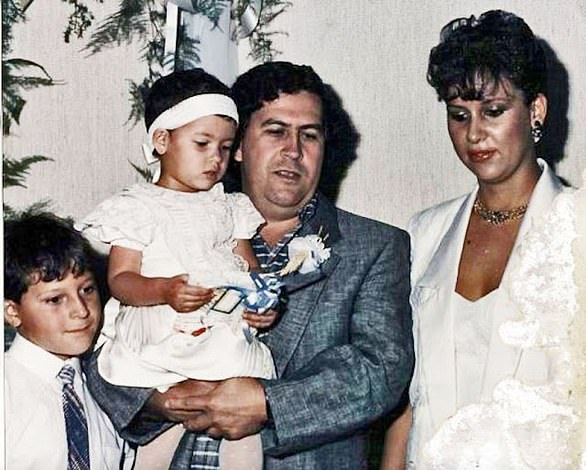Pablo Escobar’s nephew finds £14m cash in wall of one of his houses
[ad_1]
Pablo Escobar’s nephew finds £14million in cash stashed in a wall at one of the drug lord’s Columbian houses
- Nicolas Escobar said he had a ‘vision’ to look in the wall at the Medellin home
- He has lived in the apartment which was owned by the drug baron for five years
- Some of the cash has rotted since it was hidden before Escobar’s death in 1993
- The King of Cocaine was estimated to be the seventh richest person in the world
The nephew of drug kingpin Pablo Escobar has found a plastic bag with £14million of cash hidden in the wall at one of his uncle’s houses.
Nicolas Escobar said he had a ‘vision’ which showed him where to look for the money in the apartment in Medellin, Colombia.
He told local media it was not the first time he has found money in unusual places where his uncle used to hide from the authorities.
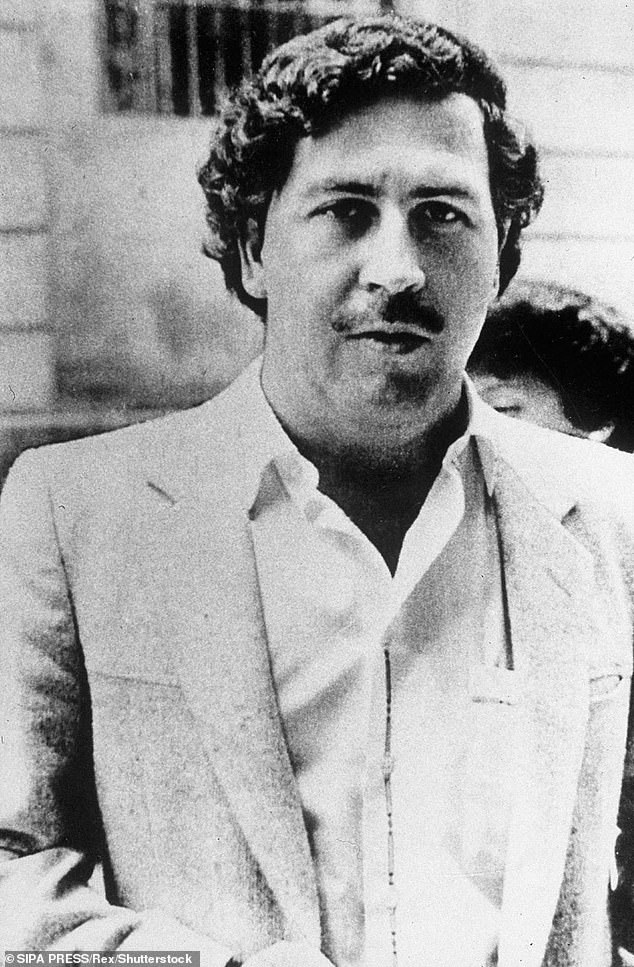
The nephew of drug kingpin Pablo Escobar (pictured) has found a plastic bag with $18million of cash hidden in the wall at one of his uncle’s houses.
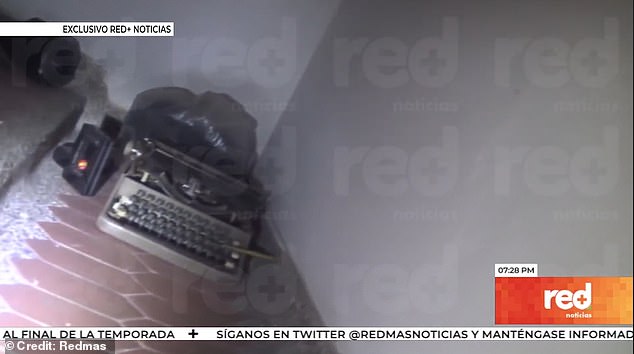
In the wall, Nicolas found a typewriter, a camera and a bag containing the vast piles of money, some of which had decomposed
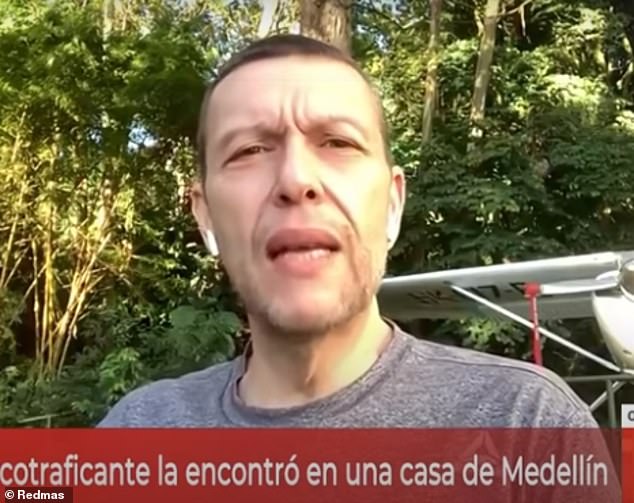
Nicolas (pictured) said he had a ‘vision’ which showed him where to look for the money in the apartment in Medellin, Colombia
Escobar, who died in a shootout with police in 1993, was said to be the seventh richest person in the world at the peak of his powers.
The ‘King of Cocaine’ reportedly hid millions in his many properties across Colombia.
He amassed an estimated net worth of US $30billion by the time of his death, equivalent to $59billion today.
During his time at the helm of the Medellin Cartel he controlled over 80 per cent of the cocaine shipped to the US.
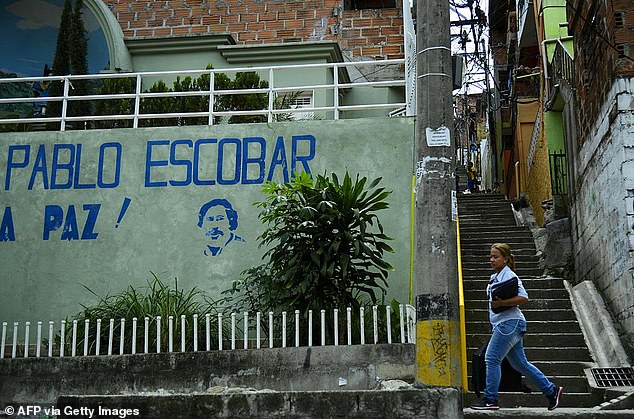
Escobar, who died in a shootout with police in 1993, was said to be the seventh richest person in the world at the peak of his powers. Pictured: the Pablo Escobar neighbourhood in Medellin
Rumours of his hidden fortunes have been circulating for years since his death.
Nephew Nicolas told Colombian TV channel Red+ Noticias he also found a gold pen, satellite phones, a typewriter, a camera and undeveloped film roll.
He said: ‘Every time I sat in the dining room and looked towards the car park, I saw a man entering the place and disappearing.
‘The smell [inside] was astonishing. A smell 100 times worse than something that had died.’
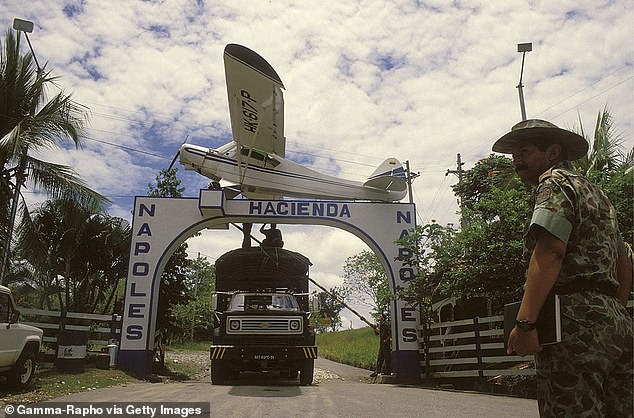
The ‘King of Cocaine’ reportedly hid millions in his many properties across Colombia, including the Hacienda Napoles, his private estate which is now a theme park
Many of the old notes stashed in the wall had decayed and were no longer usable.
Nicolas has been living in the apartment owned by his uncle for the past five years.
Escobar entered the cocaine trade in the early 1970s, collaborating with other criminals to form the Medellin Cartel.
Despite his role as a drug lord Escobar earned popularity by sponsoring charity projects and soccer clubs.
However terror campaigns run by Escobar resulted in the murder of thousands turned the public against him.
He entered politics to gain even greater influence but he was was vilified by the Colombian and US governments who wanted him arrested and stifled his political ambitions.
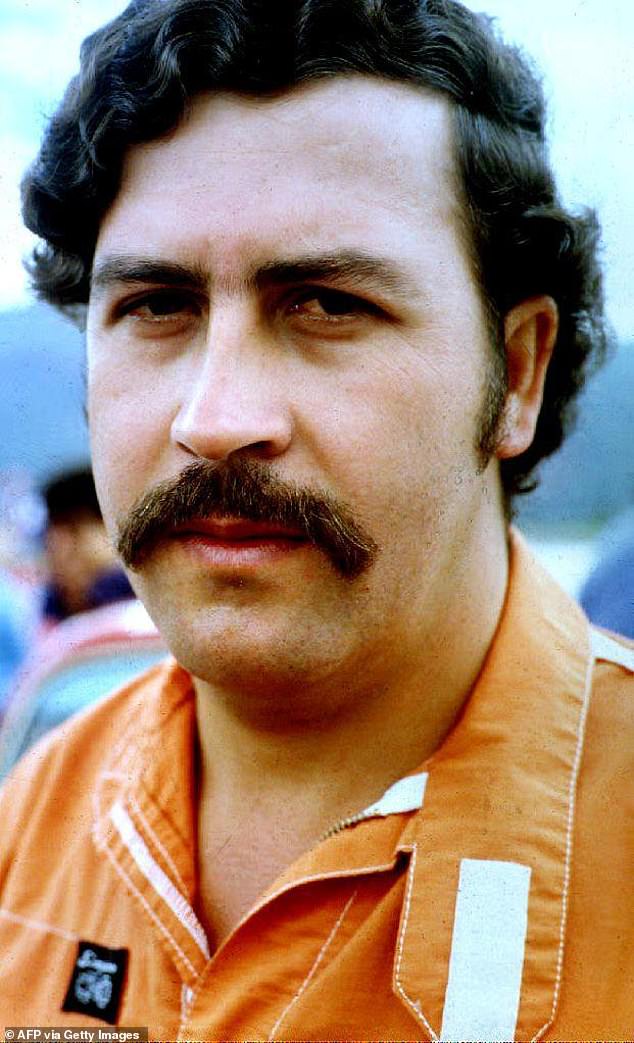
Escobar entered the cocaine trade in the early 1970s, collaborating with other criminals to form the Medellin Cartel
By the mid-1980s, Pablo Escobar had an estimated net worth of $30 billion and cash was so prevalent that Escobar purchased a Learjet for the sole purpose of flying his money.
More than 15 tons of cocaine were reportedly smuggled each day, netting the Cartel as much as $420 million a week.
Colombian law enforcement finally caught up to Pablo Escobar on December 2, 1993 in a middle-class neighbourhood in Medellin.
A firefight ensued and, as Escobar tried to escape across a series of rooftops, he and his bodyguard were shot and killed.
His legacy in Colombia is controversial, with many denouncing his horrific crimes while others see him as a Robin Hood style figure who provided a lot for the poor.
[ad_2]
Source link

